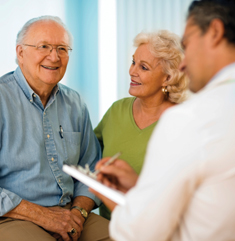What to Expect

Your Visit
Timing
Plan on arriving at Lewis & Clark Outpatient Surgery one hour prior to your actual surgery time. This is because of necessary tasks such as registration, preparation, anesthesia, etc.
Notify us of any changes in your health/physical conditions including cold, sore throat, cough, chest discomfort, or broken skin or rash on the operative site.
Food
We recommend eating a light dinner and increase fluids the evening before your surgery. It is important that you have nothing to eat or drink after midnight prior to your surgery date. This also includes no chewing tobacco, gum, certs, tic tacs, mints, and hard candies. Additionally, we recommend that you do not smoke or consume alcohol 24 hours prior to surgery.
If you have trouble with low blood sugar the morning of surgery, you may consume 1-2 ounces of apple juice. We provide a light snack after surgery. If you have specific dietary requirements, we encourage you to bring your own light snack.
Hygiene and Dress
- Bathe or shower the night before surgery using the hibiclens provided and following the instruction on the back of the packet.
- Nail polish, makeup, jewelry, body piercings, and watches should not be worn the day of the surgery. For many surgeries, acrylic or gel nails will need to be removed.
- Please wear comfortable, loose clothing, appropriate for the procedure being performed. Please bring walking shoes. You will need to undress and wear a gown during surgery.
- Do not bring any valuables with you. You may wear dentures and glasses to the facility; however, it is recommended that you bring the case to place them in during surgery.
Transportation
It is necessary to make arrangements for a responsible adult to drive you home and, ideally, to stay you with the first night following your surgery.
Medications
Discontinue any use of diet/herbal medications or ephedra 14 days prior to surgery. Stop taking aspirin, ibuprofen, and Naprosen 7 days before surgery, unless otherwise instructed. It is ok to use Tylonel (acetaminophen). Prescription blood thinning medication will need to be discussed and a plan developed with your physician and surgeon.
Items to Bring on Day of Surgery
- Water bottle
- Pillows for the ride home
- Crutches, cane, rollabout, walker
- Post-op shoe/boot/sling
- Knee, wrist, or back brace
- Incontinence or feminine hygiene products and spare clothing in case of accidents
- CPAP
- Advanced Directives/Living Will
Items for Pediatric Patients to Bring on Day of Surgery
- Diapers
- Wipes
- Change of clothing
- Special foods for after surgery if needed
- Pacifier if used
- Favorite toy/blanket
What to Expect After Surgery
- You may not drive, operate machinery, or make important decisions for 24 hours after surgery.
- You may advance your diet as long as you tolerate it. If you have nausea or vomiting, stop eating/drinking and begin again with clear liquids.
- Narcotic pain medicine can cause constipation. Drink plenty of fluids and ask your pharmacist if you need a supplement.
- Further, more detailed instructions will be given to your responsible caregiver at discharge on the day of surgery.